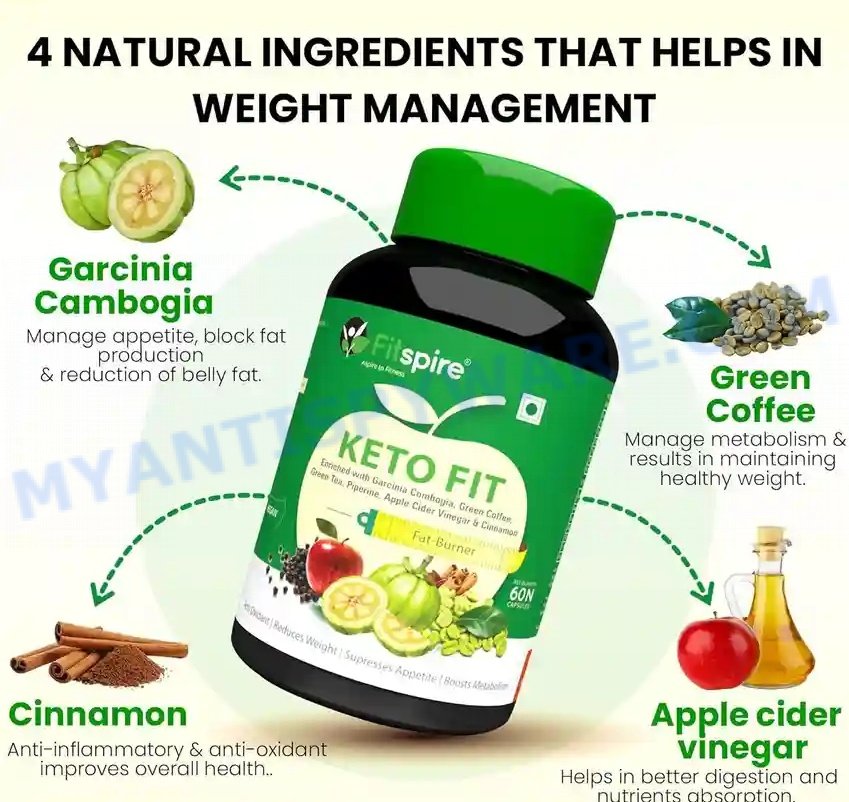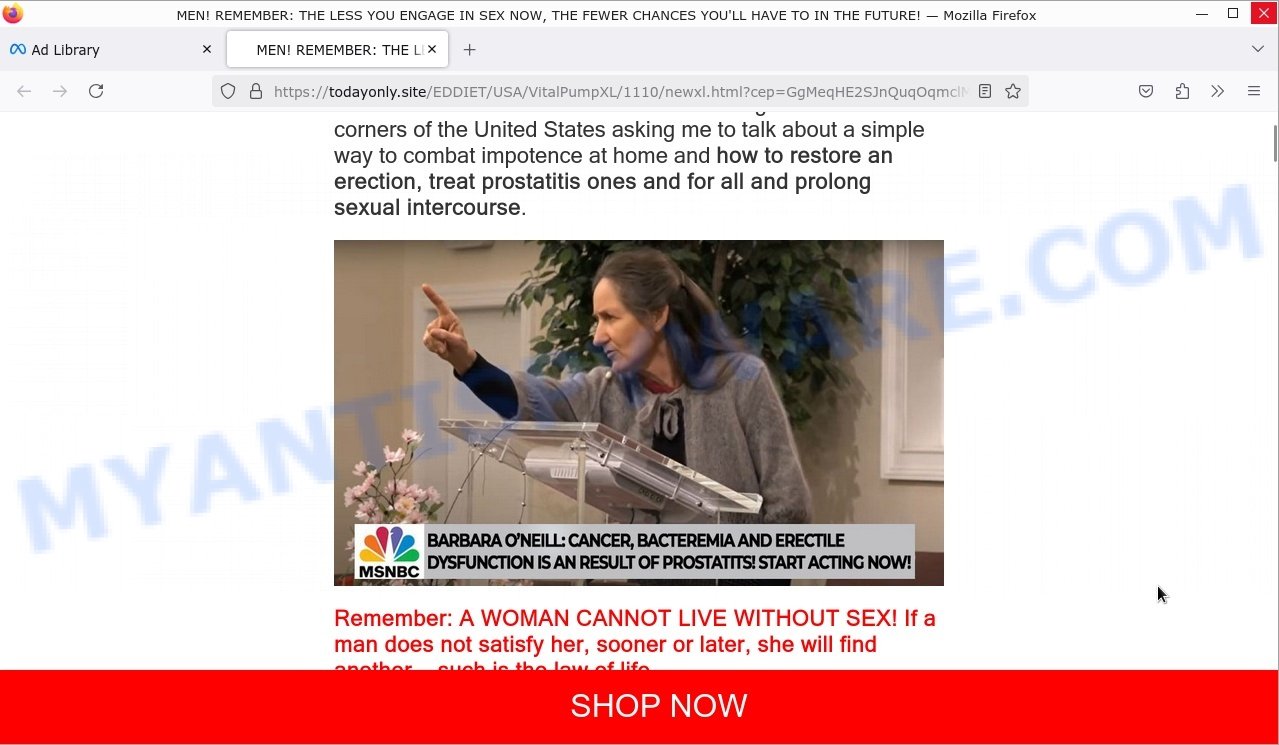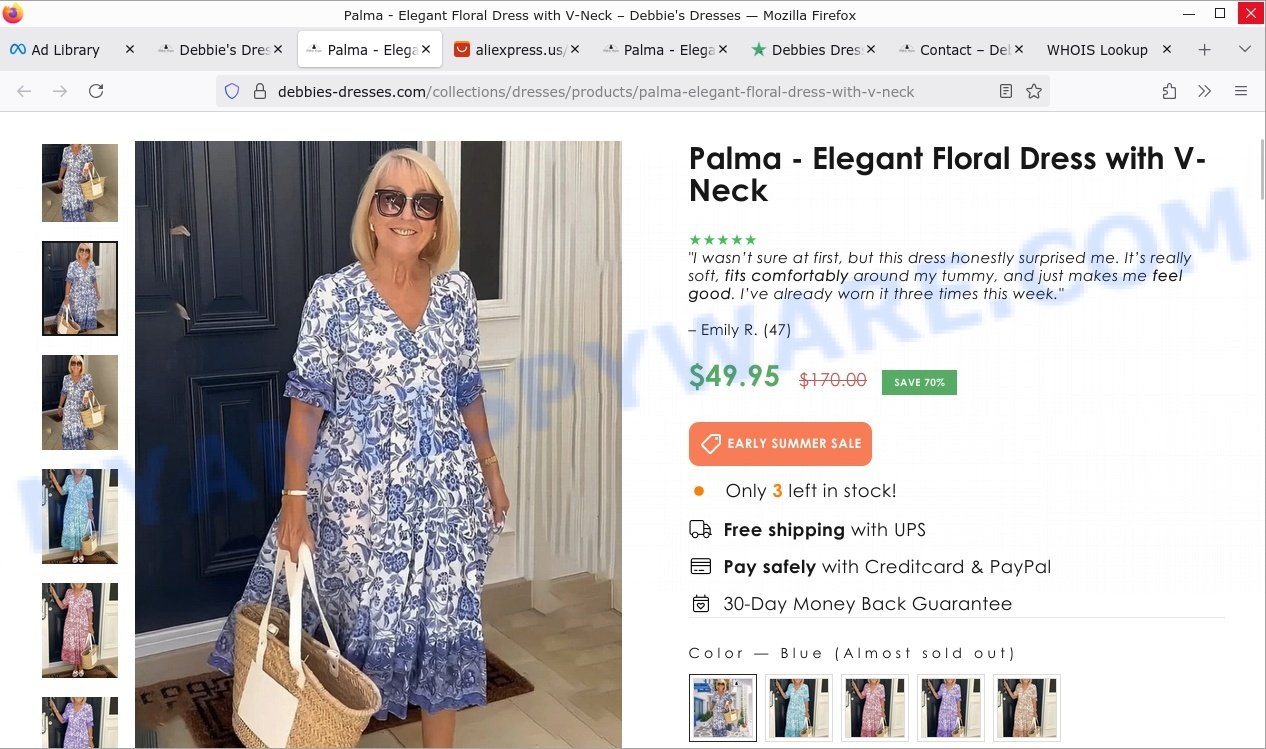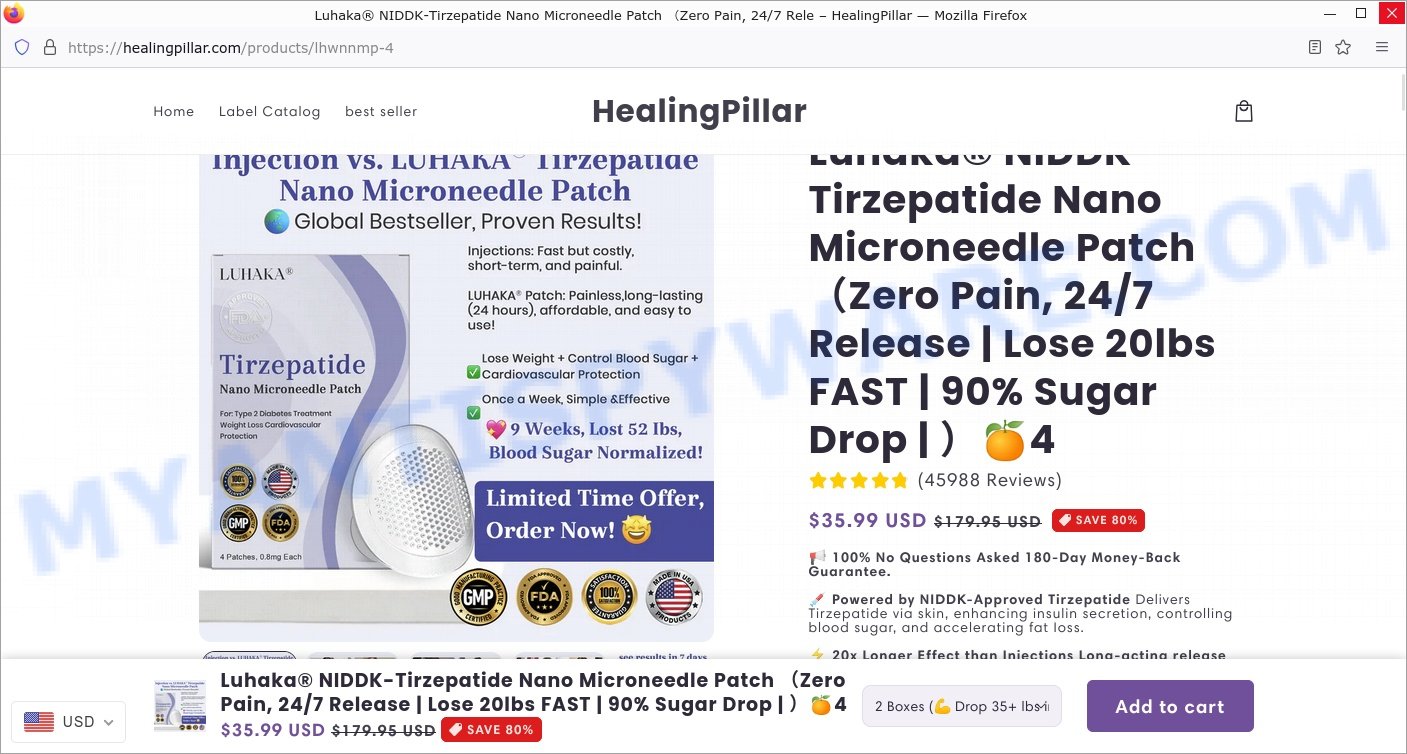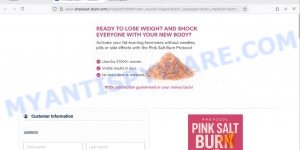Beware of the Pink Salt Burn Protocol – an allegedly “simple ice pink salt habit” touted online to melt away fat effortlessly. This so-called weight loss “secret” is aggressively promoted via a lengthy, slow-paced video packed with dramatic testimonials but fails to reveal any actual method before pushing you to purchase. The claims sound too good to be true, promising rapid fat loss without dieting, workouts, or side effects—but there’s zero credible evidence to support them.
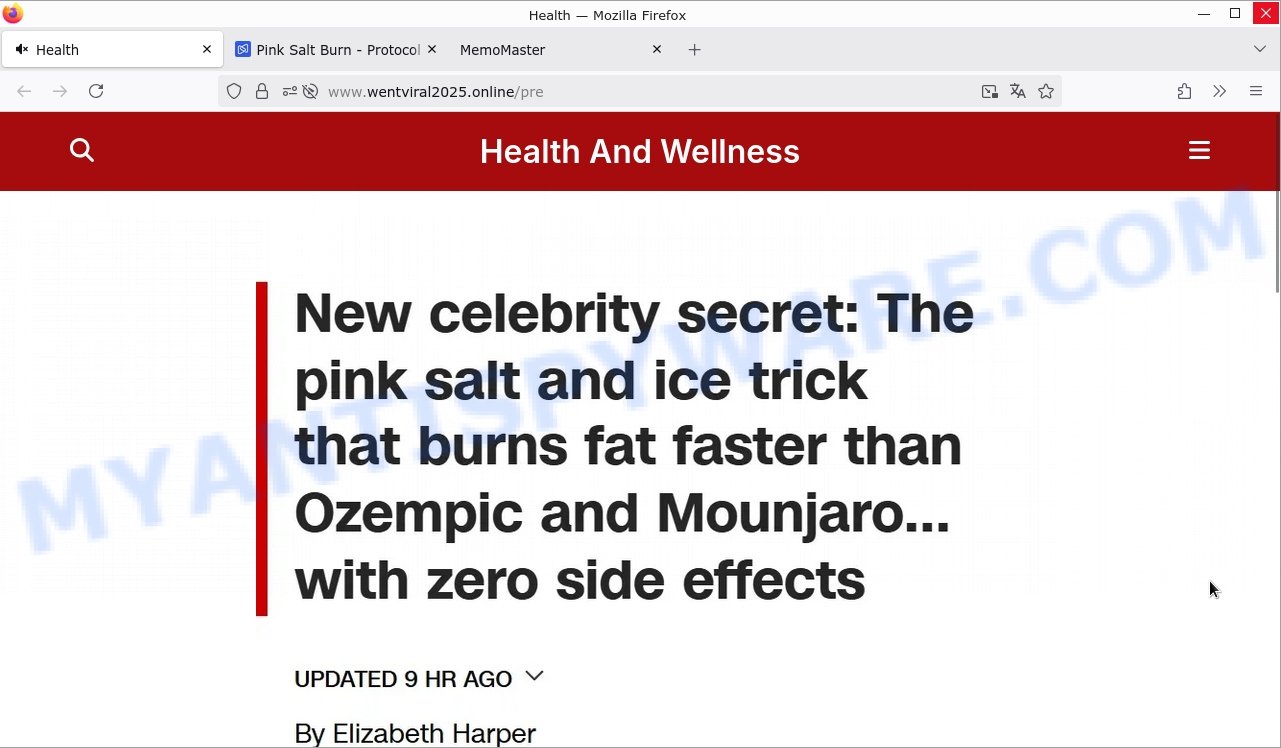
The suspicious website, wentviral2025.online, uses a generic “Health and Wellness” header and dangles fake endorsements from major news outlets like Healthline and ScienceDirect to appear trustworthy. Yet, the author listed offers no medical credentials, and the site’s simple design and urgent update timestamps are classic hallmarks of a scam. Pumping in fake comments from enthusiastic users only tries to add false social proof.
If you endure the long video, you’ll find no genuine explanation—just a final button urging you to “BUY NOW” and enter your billing information. With a price tag attached and no verifiable benefits, this scheme is a textbook example of deceptive marketing designed to lure desperate customers. Don’t fall for bold promises or flashy presentations; always approach such products with skepticism and consult health professionals before trying unproven “methods”. Real weight loss requires safe, evidence-based approaches—not internet gimmicks.
💡 Heads-up: Similar Scams Are Everywhere. Pink Salt Burn Protocol is not unique. It is one of many fake supplements, gadgets, and other schemes we expose in our Fact Checks section. All of them aim to grab your personal data or money. The people behind these scams run slick websites, spread bogus promo codes, and even pose as trusted brands or experts. Below are a few recent scams that follow the same playbook as Pink Salt Burn Protocol: Memory Lift, SafeSync GPS Tracker, STDEI GLP 1, IFMAGIC GLP-1 Pro Weight Loss Oral Solution, SMGT GLP 1 Nano Microneedle Patch.
Table of Contents
🚨 Is the Pink Salt Burn Protocol a Scam?
The Pink Salt Burn Protocol is heavily promoted with manipulative tactics targeting people eager for a quick and effortless way to lose weight without strict diets or workouts. These tactics resemble common scam strategies designed to exploit consumers seeking fast health transformations.
Key Red Flags:
- 🌐 Suspicious Domain Name: The promotion originates from a dubious URL, wentviral2025.online, which is unrelated to any reputable health organization and typical of scam or low-trust websites.
- 🎥 Lengthy and Manipulative Video: The main sales video is extremely long, initially pacing quickly to hook viewers, then slowing dramatically with emotional storytelling. Despite featuring alleged success stories, it never actually reveals the “pink salt and ice trick”, a common bait-and-switch tactic.
- ⭐ Fabricated Testimonials: The website displays numerous glowing user comments and reviews that appear overly enthusiastic and possibly fake. These testimonials cannot be independently verified and may be fabricated to create false credibility.
- ⚠️ Sensational and Unrealistic Claims: Promises that the Pink Salt Burn Protocol “burns fat faster than Ozempic and Mounjaro” with “zero side effects” are exaggerated and misleading. It is suspicious to compare unproven methods to legitimate prescription medications.
- 🔗 Misleading Affiliations: The site shows logos of reputable news organizations like Healthline and Nature, insinuating association or endorsement without authorization, a deceptive practice to gain trust.
- 🔒 Lack of Professional Branding or Credentials: The site only features a generic “Health and Wellness” header without any recognized brand logos or medical experts’ endorsements. The author, “Elizabeth Harper”, offers no credentials or verified expertise.
- 🕒 Fake Urgency: The claim that the information was “UPDATED 9 HR AGO” is a common scam tactic to coax consumers into hasty purchases.
- 🛒 Pressure to Buy: Once the video ends, a prominent button urges users to “YES, I WANT TO BURN FAT NOW!” Clicking leads to a payment page asking for detailed personal and billing information to buy a $47 product, exploiting impulsive shoppers.
In summary, the Pink Salt Burn Protocol exhibits multiple red flags common to online health scams: a suspicious website, overly sensational claims, unverifiable testimonials, manipulative video content, urgent purchase prompts, and misleading branding. There is no credible scientific evidence supporting the effectiveness of this “pink salt and ice” method. Consumers are strongly advised to avoid this offer and consult qualified healthcare professionals for safe and proven weight loss methods.
🕵️♂️ How the Pink Salt Burn Protocol Scam Operates
Scammers behind the Pink Salt Burn Protocol initiate their scheme by deploying targeted ads and sponsored posts on social media platforms like Facebook. These ads make sensational promises — effortless fat burning, rapid weight loss, and a “simple ice pink salt habit” that supposedly outperforms prescription drugs like Ozempic and Mounjaro, all while claiming “zero side effects”. They bait users with flashy headlines like “New celebrity secret” and heaps of fake testimonials boasting impossibly fast results.
When users click these ads, they’re directed to dubious websites such as wentviral2025.online that mimic legitimate health and wellness sites. These sites often use generic titles like “Health and Wellness” without any credible branding or affiliation. The domain names are suspicious—random phrases paired with future years and “.online” top-level domains are common hallmarks of scam operations. The website design is simplistic and unprofessional, lacking any genuine logos from trusted institutions, but frequently displays fake endorsements from well-known publishers like Healthline, ScienceDirect, and Nature to build false credibility.
The sales pages rely heavily on a long, drawn-out video filled with dramatic storytelling and purported success stories. The video’s progress bar initially moves quickly, hooking viewers with the promise of revealing a groundbreaking discovery, but then slows drastically, forcing viewers to watch the entire lengthy video without ever truly revealing the “Pink Salt trick”. This tactic maintains engagement while obscuring the lack of real substance behind the product.
Common tricks include fabricating endorsements and certifications, with fake claims of “100% satisfaction guaranteed or your money back” and urgings such as “UPDATED 9 HR AGO” to create a false sense of urgency. The site features glowing customer comments that are all overwhelmingly positive, but these are typically fake, and independent review platforms show little to no credible feedback.
At the end of the video, a “YES, I WANT TO BURN FAT NOW!” button appears, leading users to a checkout page demanding personal and billing information. The offer includes promises like “Activate your fat-burning hormones without needles, pills or side effects” with a product price often set around $47. After purchase, buyers are frequently subjected to upsells, recurring charges, and nonexistent customer support, leaving many frustrated and out of pocket.
In summary, the Pink Salt Burn Protocol scam depends on clickbait ads, deceptive websites, fake testimonials, and false endorsements to lure victims into purchasing an unproven product. Ultimately, consumers are left disappointed, having spent money on an empty promise that has no scientific basis or verified effectiveness.
😱 What to Do If Scammed
If you find yourself ensnared by the Pink Salt Burn Protocol Scam, immediate action is crucial. Here’s what you should consider doing:
🛑 Stop Further Transactions
The first step is to halt any additional transactions that might be in process. Contact your bank or credit card provider and inform them that you’ve fallen victim to a scam. They can help by blocking the card or reversing any unauthorized transactions.
📞 Report the Fraud
File a report with your local police and provide all the available evidence, such as screenshots, emails, and website URLs. Additionally, report the scam to online portals like the Better Business Bureau (BBB) at www.bbb.org or the Federal Trade Commission (FTC) at reportfraud.ftc.gov. If you’re in another country, reach out to your national consumer protection agency.
💻 Take Screenshots
Before the scam website gets taken down or changes, make sure to capture screenshots of your transactions and communications. These can serve as evidence if you decide to pursue legal action.
⚖️ Consult Legal Advice
Speak to a legal advisor about your situation. While pursuing legal action may be time-consuming and costly, it could be a possible avenue for recovering your lost money.
📢 Share Your Experience
Use social media platforms to share your experience and warn others about the scam. Your story could prevent someone else from falling victim to the same or similar scams.
Conclusion
The Pink Salt Burn Protocol is a scam that uses fake reviews, fabricated testimonials, and misleading marketing tactics to create a false impression of legitimacy. Promoted via sensational Facebook ads and an untrustworthy website “wentviral2025.online”, it attempts to lure buyers with promises of effortless fat burning—claiming results faster than prescription medications like Ozempic and Mounjaro, with no side effects.
The lengthy, drawn-out video presentation uses slow progress bars and emotional storytelling to keep viewers hooked, but ultimately fails to reveal any real or effective method. The site’s design is simplistic, lacking credible branding, and it falsely cites well-known news outlets to appear trustworthy. The author’s name, Elizabeth Harper, is given without any credentials or links to reputable sources.
The site pressures visitors with urgency cues such as “UPDATED 9 HR AGO” and deceptive headlines to push hasty purchases. After watching the video, users are directed to a payment page asking for sensitive billing details to buy a $47 product with a generic “money-back guarantee”—a common scam tactic.
Bottom Line: Avoid the Pink Salt Burn Protocol. It relies on deceptive tactics, fake social proof, and unverifiable claims with no scientific support. Always research health and weight loss products carefully, especially when they make unrealistic promises supported only by manipulated videos and fabricated testimonials. If an offer sounds too good to be true and depends on fake endorsements, it is most likely a scam. Stay cautious and protect your personal and financial information.
